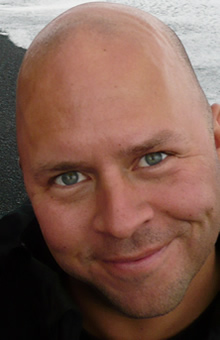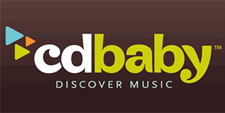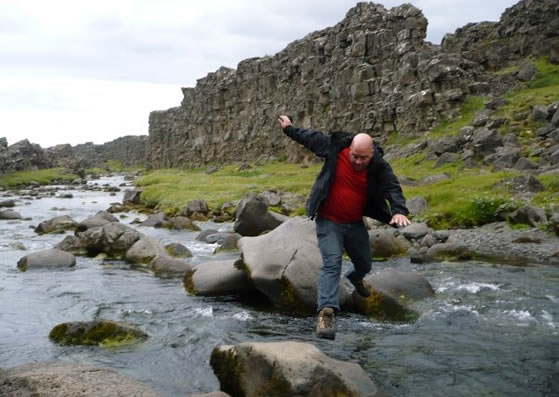
- Listen To My Most Emotional Interview Ever: Derek Sivers from CD Baby
- How To Make Sure You Don’t Go Crazy After You Sell Your Company: Unusual Strategies From A Guy After His Big Payday
- Can A $20M Company Be Set Up To Run Fully Automated And Generate $4M/Year Profits?
- Derek Sivers Talks Business Philosophy And What Motivates Him To Build Online Businesses
Full Interview Audio and Transcript
Personal Info
Hobbies and Interests: Reading Business Books, Bicycling, International Travel.
Sports teams: None.
Favourite Books:
- The E-Myth Revisited: Why Most Small Businesses Don’t Work and What to Do About It by Michael E. Gerber
- Island (P.S.) by Aldous Huxley
- Awaken the Giant Within : How to Take Immediate Control of Your Mental, Emotional, Physical and Financial Destiny! by Anthony Robbins
Favourite Entrepreneurs: Richard Branson, Seth Godin, Mark Shuttleworth.
Twitter url: http://twitter.com/sivers
Personal blog: http://sivers.org/blog
Company website: http://sivers.org/muckwork
Fast Track Interview
Adrian Bye: We’re here with Derek Sivers, who founded CD Baby. He has quite a story. Derek, take it away by telling us about yourself.
Derek Sivers: I’m a musician really. When I was 14 years old, I decided that I was going to do nothing but music for life. I’ve been making a full-time living in music since 1992.
 Around 1997, I was selling my own CD at live shows and had sold about 1,500 copies. I decided I wanted to try to sell it online. At the time, I was doing this radio campaign, and my CD was at number one at college radio stations in New Mexico, Maine and Alaska. I wanted to sell the CD online so people from those places could buy it.
Around 1997, I was selling my own CD at live shows and had sold about 1,500 copies. I decided I wanted to try to sell it online. At the time, I was doing this radio campaign, and my CD was at number one at college radio stations in New Mexico, Maine and Alaska. I wanted to sell the CD online so people from those places could buy it.
It was a very different online world in 1997. There was no PayPal to accept online payments. Amazon only sold books. As a musician, there was literally not a single online place where you could sell your CD, except for eBay, but that’s not really where people shopped for music.
I called the big online record stores and asked if I could sell my CD through them. They said, "We’re just the frontends to the major label’s distribution system. The only way you can be for sale on CDNOW, for example, is if you’re signed through a major distribution." I said, "Can’t I just send you a box of CDs, and you sell it and pay me?" They just laughed and said, "Look, kid. It doesn’t work that way."
I never really meant to start a business. I just set up CD Baby to scratch my own itch to sell my own CD because there was nowhere else to do it. I went through three months of hell to get my own credit card merchant account on my band’s website. Then I had to learn how to create an online shopping cart, which also was pretty difficult in 1997. After three months of hard work, I had a Buy Now button on my website. That’s when some of my fellow musicians in New York said, "Hey, could you sell my CD through that?" I said, "Sure, I guess." What later became CD Baby really was me doing a favor for some friends around New York.
Adrian Bye: How big did CD Baby grow?
Derek Sivers: It had 10 or 20 musicians on it at first. Since I was the only one doing anything like that, word-of-mouth was spreading around to musicians that, "If you want to sell your CDs online, there’s this guy, Derek, who can hook it up." Talk about business startup environments. There was just no competition. I was the only guy that would get your CD up and selling online. Within a few years, CD Baby was the largest seller of independent music online. By the time I sold it 10 years later in 2008, we had done about $100 million in sales for 150,000 musicians.
Adrian Bye: What were sales per year?
Derek Sivers: About $20 million with a net profit of about $4 million a year.
Adrian Bye: Nice. Then you sold it for $22 million?
 Derek Sivers: A lot of people assume the reason you’re doing something is for the money and the reason you want an exit is for the money. For me, it was neither. I started CD Baby as a favor for friends. I didn’t think there was any money in this. It’s the same thing with getting out. It was a healthy profit of $4 million a year, but I didn’t really need the money. I had no investors, so it was 100 percent mine.
Derek Sivers: A lot of people assume the reason you’re doing something is for the money and the reason you want an exit is for the money. For me, it was neither. I started CD Baby as a favor for friends. I didn’t think there was any money in this. It’s the same thing with getting out. It was a healthy profit of $4 million a year, but I didn’t really need the money. I had no investors, so it was 100 percent mine.
In 2007, I did a complete rewrite of the software. I fixed all of the mistakes, bugs and all of my regrets, and I made this amazing version of everything I ever wanted the website to be. I launched it, and it went well. Then I had this sense of completion like "I’m done. I don’t know what else to do with this ‘thing’." It got to the point where I felt my clients were actually more ambitious than I was. They wanted to grow their careers, and I didn’t want to grow anymore.
Seth Godin, the author of a bunch of books like the Purple Cow, has been a mentor to me over the years. When I told him about this situation, he encouraged me to sell. He said, "You know, if you care about your clients and your company, you should sell." It was the idea that I was doing my company a disservice by remaining at the helm when I was feeling completely unambitious about it.
Adrian Bye: I read somewhere that you had the company completely automated by that point. You could have just sat back and let it keep going, right?
Derek Sivers: Exactly, and that’s what I was doing for the rest of 2007 and 2008. I hadn’t even been to the office in a few years at that point. It was just going.
Adrian Bye: Could you have kept running the company fairly comfortably and generating $4 million profit a year the way it was?
Derek Sivers: I could’ve. I was prompted to sell because I had three offers in one week. For the entire time I was running the company, some VC firm or competitor would offer to buy the company every month or so. I always just shooed them away and said, "No." I didn’t even entertain the notion then.
But in one single week in January 2008, I got three calls. I told them all, "No." Later that weekend, I started thinking "I’ve just been saying, ‘No,’ for 10 years but maybe…" I called them all back and said, "Yes." I then let them bid against each other.
I chose Disc Makers to buy the company. Amazon was in the running and was actually willing to offer much more money, but I’d known Disc Makers for seven years, and they had already been dealing with independent musicians for many more years than that. I felt they would do a better job of taking care of my clients by knowing my clientele and understanding them better than Amazon. Yes, I chose Disc Makers for less money because I just felt my clients would be in better hands.
Adrian Bye: Was it a lot less money?
Derek Sivers: It’s hard to say because we were still negotiating with Amazon. There was no final offer, but it was many millions less. After a certain point, what does it really matter? What’s the difference between $22 million and $32 million? I decided to give it all away anyway, so it doesn’t really matter.
Adrian Bye: You decided to give all the money away?
 Derek Sivers: Yes. After we had a handshake deal and agreed upon price, there were a few months of paperwork before the deal was done. I was talking with my lawyer and accountant and feeling a little overwhelmed with "What do you do with $22 million?"
Derek Sivers: Yes. After we had a handshake deal and agreed upon price, there were a few months of paperwork before the deal was done. I was talking with my lawyer and accountant and feeling a little overwhelmed with "What do you do with $22 million?"
I told them, "I don’t even really want the money. I want it all to go to charity anyway. I just want to know that I don’t have to get a job at some point later in life. I want to know that I’m taken care of, but I think it could be harmful for me to have $20 million." They told me about the Charitable Remainder Unitrust. It’s a charitable trust you can set up that pays the settler 5 percent of its value per year for life. Then when you die, it all goes to charity.
It’s usually set up by people at retirement age, who want to give everything away but also make sure they still have a little trickle coming in to help pay for their basic cost of living. I just set that up decades earlier than most people do. Months before I sold the company, I set up the charitable trust and transferred the company’s ownership into the trust.
When Disc Makers bought the company, they didn’t actually buy it from me. They bought it from the trust; all of the money would go into the trust tax-free, which made no difference to me except it means that millions more will go to charity in the end. Then I just get paid this 5 percent trickle for the rest of my life, which is enough for me. The charity is set up for music education, so it’s all going to go to music education when I die.
Adrian Bye: That’s really interesting. I’ve never heard a story like this.
Derek Sivers: Oh, thanks. You never have to do things the normal way. Maybe it’s because I’ve been a rebellious musician my whole life, but I didn’t start my company in the normal way. I didn’t run it in a normal way.
We’re all free to shape the world in our image, and I don’t want $20 million. You couldn’t pay me to own a Ferrari. I don’t want a 19-bedroom mansion. I think that would be horrible. I just want a decent life, so I liked the idea of getting as much of it out of my hands as possible as long as I was taken care of for life.
Adrian Bye: Can you undo it if you change your mind?
Derek Sivers: No, I can’t. It’s done. When I signed the company into the charity months before the company was sold, it was gone and no longer mine. The money is not mine, and I can’t get it back if I want to.
I’m actually doing the same thing for my new company. I set up a trust first, and the trust is actually starting the new company and assigning me as the Director of it, so I’m not the owner of that one either. A charitable trust owns that company as well.
Adrian Bye: What I’m having trouble reconciling is that you’re a guy who has built a $20-million business. You sold it and made a lot of money. You are going to start another business. It’s not like you’re working in a Starbucks or something like that. The impression you give is that you’re a laid-back guy, but with all you have done, you can’t be that laid-back.
Derek Sivers: Oh, no. I’m definitely not laid-back. I use money as a barometer of measuring the value of what I’m doing. If the public is finding it valuable, they’ll open their wallets to pay for it. Money inspires me, but I also realize I didn’t necessarily want it for myself.
The idea of earning money and giving it to others excites me more than earning it and keeping it for myself, which makes me feel kind of icky. I have always been a workaholic, but it’s separating the idea of needing to keep the money from being ambitious. You can be ambitious without wanting money.
Adrian Bye: You didn’t have any funding for your first company. Now, you’ve given your money away. Are you going to have funding for your next company or is it going to be built from the ground up as well?
 Derek Sivers: It will be built from the ground up. I did set up the new trust to transfer a small amount of money around $5,000 into a fund of the trust. That small amount will be all that’s in there to set up the new company. If my first little experiment does well, there’ll be funds in there for the next one.
Derek Sivers: It will be built from the ground up. I did set up the new trust to transfer a small amount of money around $5,000 into a fund of the trust. That small amount will be all that’s in there to set up the new company. If my first little experiment does well, there’ll be funds in there for the next one.
I’m going to always aim to build a company without any investors, unless I do something like start an airline, which I don’t really see happening. I’m happy working on a really small-scale. I never really wanted to start a grand company and raise many millions of dollars to start something huge. I like the idea of tinkering with small things that don’t need funding.
Actually I started CD Baby with only $500 – $99 was for a copy of Dreamweaver to build the site, $20 for my first month of web hosting and then $375 for the SSL Certificate through VeriSign. It actually lost money that first month; I only made $300 the first month. The second month in business I made $700, and that was profitable. I probably only made $1,000 in my eleventh month in business. It grew really slowly, but I was net profitable. I’m cool with that kind of slow growth.
My new company, Muckwork, is a remote assistance firm. What’s really fascinating to me is this combination of not trying to do everything myself but working with other people to get things done. It’s the idea of the virtual assistance firms where people help you as an assistant by the hour or literally by the minute for whatever you need. That assistant sits at a computer somewhere in the world, and you outsource the things you need help with to them instead of hiring a person to sit next to you in your office working 9:00 to 5:00 for 40 hours a week.
I am setting up this virtual assistance firm for musicians with people working from home worldwide that are already well-trained to help musicians. Whether it’s booking gigs, copywriting songs or updating MySpace pages, a musician can ask somebody from Muckwork to help them with it.
I’m going to do Muckwork as an experiment in crowdsourcing as well. I’m going to see if I can do a company with no employees and have everybody, even the management, be freelancers who aren’t bound to me but want to do the task.
Adrian Bye: Do you intend to build an office for Muckwork or are you going to be traveling around the world while working on this?
Derek Sivers: I’ve been living the laptop life for a few years, and I really like it. I like the idea of living for a few years each in different countries. I’m challenging myself for my next company to have no office, no employees and just have the system set up from day one so everybody is working as freelancers from home. It might be a failure, but I might learn a lot of good stuff along the way. It’s worth a try.









